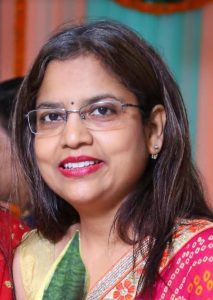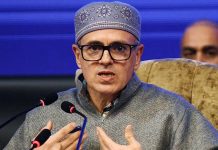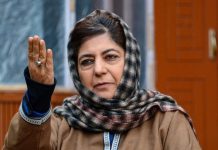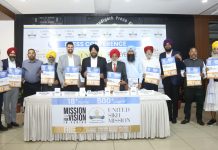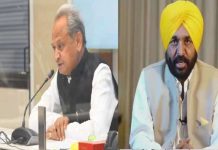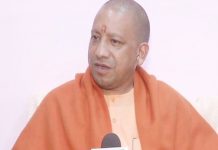 Staying with a man in live-in relationship, giving birth to children without getting married, without securing social status of a mother was her woes,a part of Adivasi tradition in Jharkhand.
Staying with a man in live-in relationship, giving birth to children without getting married, without securing social status of a mother was her woes,a part of Adivasi tradition in Jharkhand.
As per tribal community norm, she was recognised as ‘Dhukni’(Woman). The man was called Dhukua (Man)-a Mundari word which in English means “To Enter Or Get In’(House of a Man).
It is related to civil cohabition and approved before and after pregnancy and even after birth of children.For many, it could be a part of tribal life.But for Nikita Sinha, this was the inspiration for movement. Her aim:reform this social bane prevalent in patriarchal tribal communities for centuries due to poverty and illiteracy. Her active mode: mobilise educated tribal men and women as a potent medium for persuasion for empowerment of these Dhuknis-women.
The result:During the past four years more than 200 Dhuknis-Dhukuas had rolled together under the umbrella of mass marriages, organised by NIMITTA, a social organisation led by Nikita as its Secretary in Jharkhand. It helps live –in tribal couples get married and lead happy family life.
Consider the case of Ram Lal Munda. After living-in with him for almost 30 years, Sahodari had got married in the latest mass marriage organised by Nikita on January 25,2019. Eversince then she has been having the status of his wife and as mother of two children. As wife and mother, she has gained the right over her husband’s property which she was deprived off as Dhukni.
Enquiry by the Tehelka revealed that thousands of couples in the tribal villages of Jharkhand stay in live-in relationships as they failed to organise grand wedding parties.
Sumli Kumari of Khunti, who had got married at the mass wedding, says, “Our people did not allow us to get married as we did not have money to hold a feast for the entire village.”
These tribals earn Rs 200-250 a day. Aware of their economic hurdle, Nikita apprised private companies and the state government led by BJP’s leader and chief Minister Raghubar Das of this tribal social evil. NIMITTA gained sponsorships of half a dozen companies and the state government for organising marriages of these Dhuknis and Dhukuas –first in Khunti, second inside Jharkhand Armed Police 1 ground and third inside Jharkhand Civil Service Officers Institute.
Another positive outcome for Dhuknis was this. With marriage held in a ceremony, it was registered, and as a result, she can not be denied her right over her husband’s property and as mother in future, thinks Nikita.
While the couples in live-in relationships are not harassed by the villagers, the women are never given the respect they deserve. Any children born out of this relationship too are not socially recognised.
“The term ‘Dhukni’ itself is derogatory. It makes one feel that the woman has forcibly gotten into the house of the man. These women are never given the rights of a wife; they cannot apply sindoor, nor do they get a part in the husband’s ancestral property, if he dies,” Sinha informs.
In a ‘Dhuku’ marriage, if the man dies, the woman is left with nothing as the relatives of her partner do not share the property with her and she is forced to live on the mercy of others.
Sheela Munda, a young ‘Dhukni’ woman, says, “As I do not apply sindoor, I do not feel safe while stepping out of the village because men often harass me, assuming that I am not married.”
The Dhuku marriage takes a heavy toll on the children born from the union.
“Getting a child’s ears and nose pierced is a tradition in our society, but children born out of Dhuku marriages are not allowed to go through the process. As a result, they are never socially recognised in the community,” says Sheela. Another change is visible in Dhuknis’ children’s face. Human trafficking was a major concern in the state where such children were easy targets. If a child born from a Dhuku-Dhukni marriage, he/she was easily trafficked and rescuing him/her was a huge problem for the police.
Admits Aradhana Singh, a retired police officer who has worked extensively against human trafficking, said, “Most of these children do not have any proof of identity. They are not mentioned in the ration card of their family nor do they have an Aadhaar card. In such a situation, repatriating them with the family becomes a challenge as their address or names of parents cannot be found.”
Ask Runim Mundari, a beneficiary of Nikita’s revolutionary movement against poor tribal live-in tradition, and pat comes her reply that it has brought radical change in her life.
“After getting married, the first thing I did was to get my daughter’s ears and nose pierced. I am so relieved now, because she will not be treated differently in society. Also, we will now be adding her name in the ration card,” says Dayamani Khess, who lives in Khunti.
Another beneficiary of Dhukni –Dhuku marriage movement, says, “I feel elated when my neighbours treat me with respect. However, getting these couples married is not an easy task for the organisation.”
Nikita faced opposition from the tribal community. “Once, I saw some villagers were adamant that they will not let anyone in their village get married until Khess holds a feast for each one of its residents.” So she selected villages where tribal men were cooperative and agreed for the weddings. “Some Village Pradhans are very supportive, and they permit us to get the couples married without much hassle”, recalls Nikita.
She says, sometimes the boy refused to get married. “In such cases, the villagers counselled him and mobilised him to agree,” she states.
The idea of organising mass marriages came to her mind when she was in a village in Khunti in 2009. A drunken man had approached her and asked her help in marrying a girl.
“We first thought that he was in love with a girl who he wanted to marry, but on visiting his place, he introduced us to the woman who was a mother of his 10-year-old child,” she recalls.
She concludes, “That was when I was introduced to the concept of Dhuku marriages and decided to help the women.” This has brought a radical change in families of these men and women who have been living in live-in relationships for years.
|
Forty plus Nikita Sinha has been working in fields such as health, education, sanitation, empowerment of women since 2010. She has partnered with tribal men and women in Khunti, Ranchi and Gumla districts of Jharkhand. As Secretary of NIMITTA, an NGO registered under Society Registration Act,1860, she launched movement against Dhukni –Dhuku Live-In bane in 2015. Eversince then, she has organised three mass marriage functions for its victims benefiting more than 200 tribal couples in Jharkhand. In 2017-18, Nikita’s organisation held mass marriage of 43 couples from different districts of Jharkhand in collaboration with Hindustan Petroleum Corporation Ltd. It was attended by Chief Minister Raghubar Das among others. |

